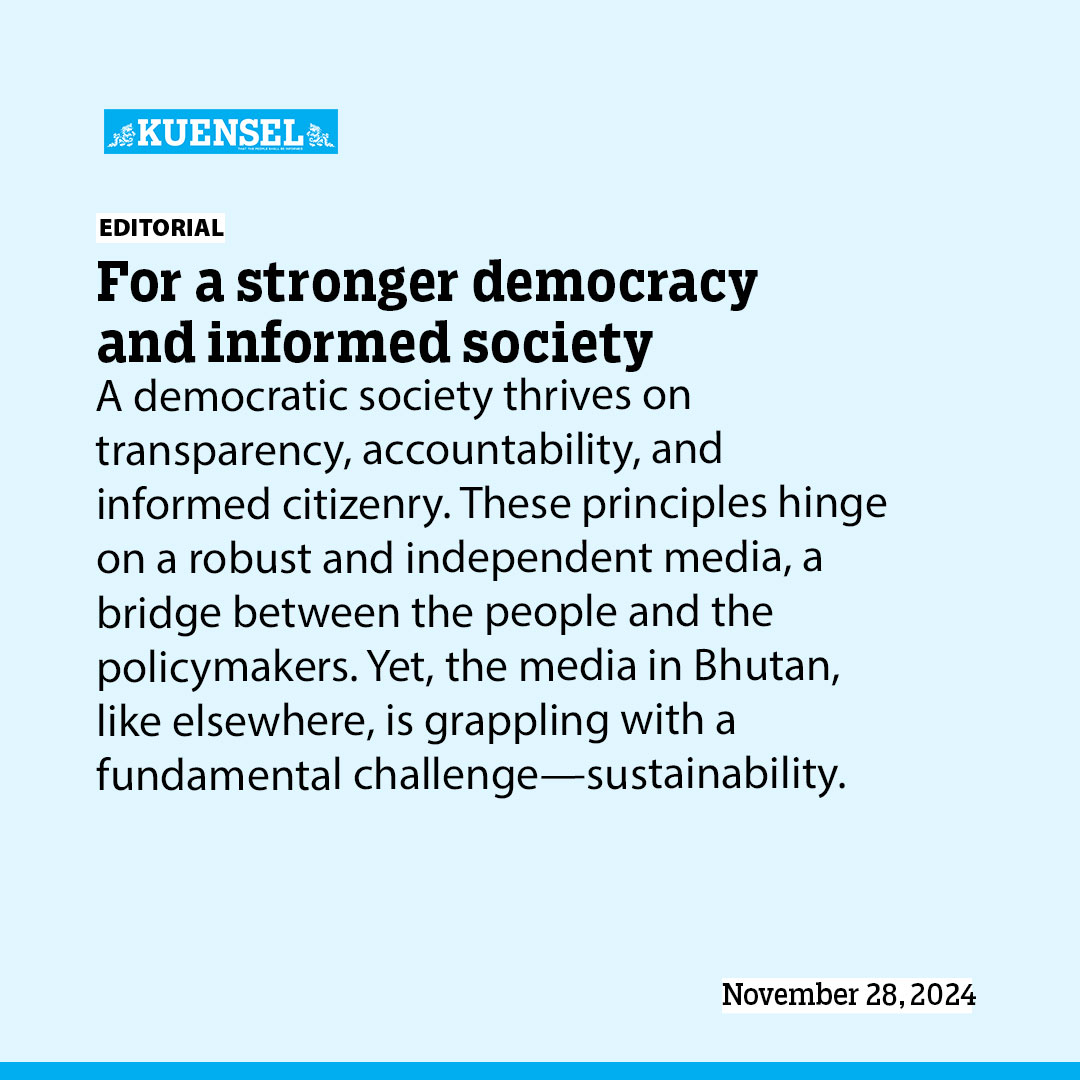A democratic society thrives on transparency, accountability, and informed citizenry. These principles hinge on a robust and independent media, a bridge between the people and the policymakers. Yet, the media in Bhutan, like elsewhere, is grappling with a fundamental challenge—sustainability. The perennial struggle of balancing financial viability with journalistic integrity places media houses under constant pressure.
Government agencies, on the other hand, operate within the confines of rules, regulations, and administrative priorities. While their responsibilities differ, both journalists and government officials ultimately serve the same public.
In a promising development, this shared objective brought them together for a two-day conference to deliberate on key issues, including access to information, the impact of artificial intelligence (AI) on journalism, and ethical challenges in an evolving media landscape.
The conference was organised by the Journalist’ Association of Bhutan and the Department of Media, Creative Industry and Intellectual Property to forge a pathway to relay timely information in the most seamless format.
In the past, access to information was often a sticking point, with journalists blaming on the bureaucratic hurdles that stifle their pursuit of truth. Meanwhile, government officials viewed the media as adversarial, rather than as a vital partner in nation-building.
The conference signalled a shift—recognition that collaboration, not conflict, is the way forward.
The discussions on AI in journalism were particularly timely. AI presents opportunities to enhance efficiency and expand coverage but also poses ethical dilemmas, including the risk of misinformation. As Bhutan embraces digital transformation, these conversations are crucial to ensure that technological advancements are harnessed responsibly, without compromising journalistic principles.
Equally significant was the focus on ethics. In an era of sensationalism and “clickbait” culture, maintaining high ethical standards is imperative. Journalists must navigate the thin line between public interest and sensationalism, while government agencies must resist the urge to suppress information under the guise of safeguarding national interest.
What made this conference remarkable was its spirit of mutual respect and understanding. It acknowledged that while the roles of the media and the government are distinct, their goals intersect. The media informs, educates, and empowers the public, while the government implements policies and ensures stability. Both are indispensable to a vibrant democracy.
The fact that such discussions are happening at all shows Bhutan’s growing maturity as a democratic nation. When media professionals and government officials sit across the table to thrash out issues and chart a pathway for better information flow, it fosters trust—a foundation upon which stronger institutions are built.
Such collaboration is not about blurring the lines between their respective roles but also about recognising their interdependence.
So, the way ahead is clear. The government must institutionalise mechanisms for timely and transparent access to information, while the media must uphold its responsibility to report accurately and ethically.
In a world where the free press is often under siege, such a conference gives us hope. It is a reminder that even in the face of challenges, democracy, when nurtured, only grows stronger.


